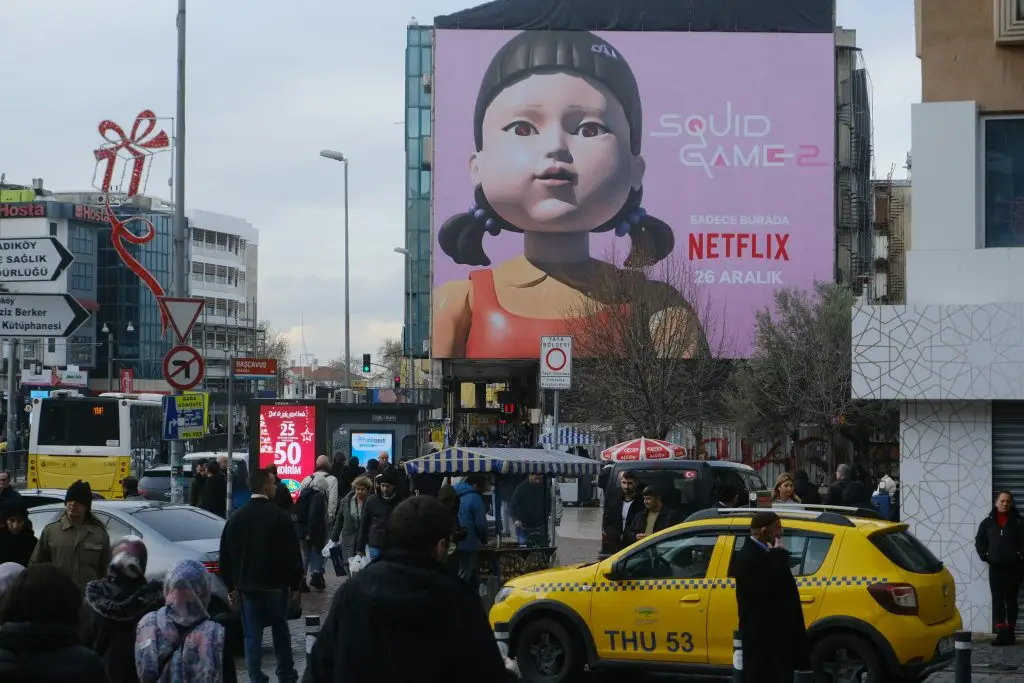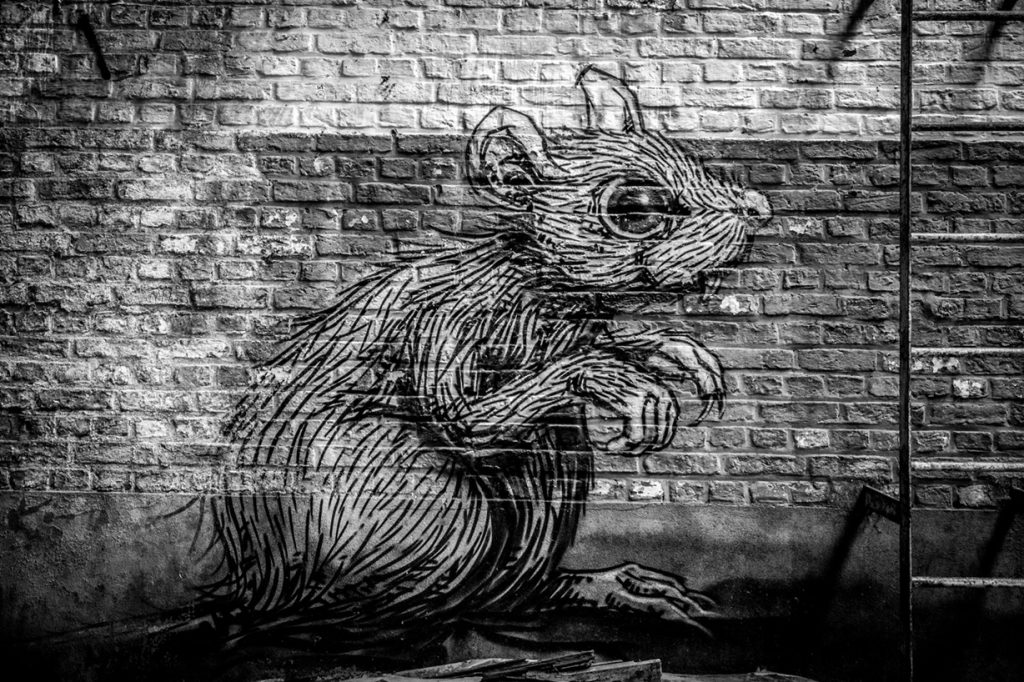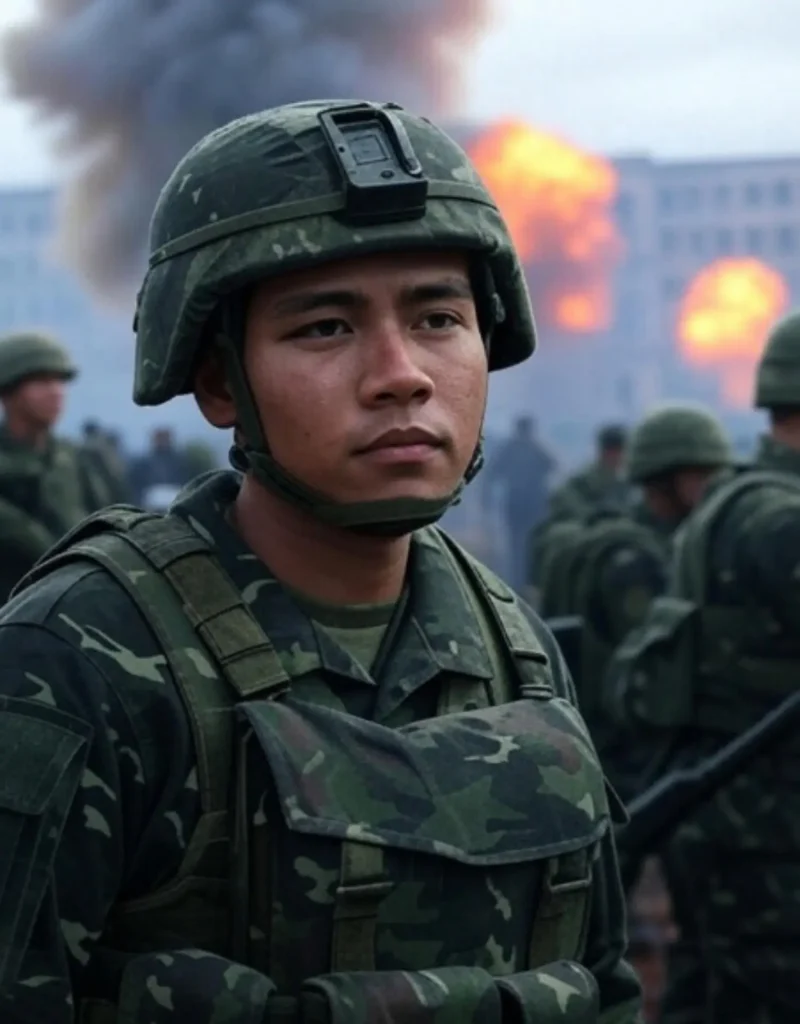
A critical analysis of the popular Korean show Squid Game and its social, economic, and political messages.
For a number of years, while suffering from more than just a bit of consternation, I have observed the near-religious fervor with which Filipinos idolize sexually dimorphic Korean “K-Pop” groups that strangely never play instruments or seem to be actually singing at all during their routines. Fan clubs in Manila of BTS, BlackPink, and other big Han-Gook acts rival their originator counterparts in Seoul on levels of fanaticism that frequently manifest cyber-bullying and threats of violence, inducing more than just a few suicides and career terminations.
Then there are the “K-Dramas,” hyper-emotional, ultra-misogynistic primetime performances that appear nearly irresistible to most Filipinas. In certain demographics, these unabashed rehashings of old British soap operas from the 60s and 70s have inexplicably usurped the popularity of tried and true local TV series like Ang Probinsyano or Pangako Sa’Yo. Today, the most popular Netflix show in the Philippines is a gruesome horror montage where hundreds of indebted Koreans kill each other willingly in a monetized “child’s game” put on by mysterious master criminals working for bloodthirsty white people.
Taking it all in one day last week, I found myself getting dizzy, disoriented, and quite honestly, very sad for my Philippines.
The “Korean wave,” or Hanlyu (normally mispronounced Hallyu) as they call it, began here around 2005 after carpet-bagging Japanese, filling the void created by the US bases exodus, limped home when the Tokyo economy plateaued in the wake of the “Asian Flu” financial debacle. With the proclamation made by the Seoul government in 2004 that declared both casino gambling (aka money laundering) and prostitution (aka human trafficking) illegal, the major gaming and brothel operators frantically looked elsewhere to ply their trade.
But the Vietnamese regarded them as too boorish, the Cambodians could not understand them, and the Thais were reticent to alienate their Western customers. Luckily, there was a new home they could quickly and easily call their own, just a few hours’ flight south of Incheon: The Philippines. Populated by some of the most beautiful women and easily corrupted politicians in the world, the K-Pimps were welcomed with open arms, at a fraction of the cost it took to keep Korean mayors happy. By 2009, the flood had become a virtual K-Tsunami.
I first became aware of the horde of grunting, near-sighted, cigarette-puffing Oppa’s and Hyung’s (both somehow translating as “Big Brother”) when a colleague in Manila asked me to speak with a 21-year-old Waray lady named Maria (not her real name, of course) living in Angeles City, asking for assistance in going after the deadbeat father of her only son, a Kopino. For those who don’t know, the term Kopino refers to a child born of a Korean father and Filipina mother.
In almost every instance, the father is a sex tourist or manager employed at Korean factories on Luzon or Cebu. Estimates are that 50% use their paternal status as a way of convincing the mothers to marry in pursuit of spousal visas, providing a means to remain in the country permanently. Some will use the new wife to legally acquire property, but more often, as there is no divorce law in the Philippines, the mother and child/children are usually abandoned or maintained in a hovel, out of sight. Maria was one of the first brave Filipinas willing to force responsibility on her abusive “husband,” who we’ll dub “Choi” for the purpose of this exercise.
Once his real identity (as is customary among the ilk, he had given an anglicized pseudonym on the marriage and birth certificates) was discovered through the collection of fingerprints and facial recognition by the South Korean embassy’s ROKNIS (Republic of Korea National Intelligence Service) office, a local counsel friend was able to have an Article 195 Demand Notice issued, which—as expected—prompted Mistah Choi to flee back to Pusan. My local counsel in Incheon, formerly a prosecutor in the ROK Army and now one of the leading human rights attorneys in the country, quickly got to work by serving a subpoena through his employer.
When Choi’s defense lawyer argued that the child had no rights as the mother was a non-Korean and a “simple foreign sex worker,” the tactic only succeeded in enraging the female judge, who happily threw the book at him. She then chastised the old boy publicly by stating he had brought shame upon the Republic of Korea. Fifty-six at the time, he was forced to set up a generous 20-year monthly stipend and balloon trust, underwritten by the South Korean government to ensure compliance, which provided for the child’s education and livelihood until his 22nd birthday. Following this landmark case, our plucky legal team was able to successfully prosecute a number of other cases like Maria’s.
In 2018, a Korean-language e-book entitled How to Treat Bar Hostesses in the Philippines, published by a “Kevin Cho,” was downloaded over 46,000 times in South Korea and is still available from the online book retailer Kyobobooks. Some of its more noteworthy advisements include, “Make the best use of Filipinas, who can give unforgettable memories,” “…while studying English there, women can be either medicine or poison,” and “they can make you feel confident about your English, but in worst case (sic) you may end up coming back to Korea after getting a woman pregnant, or could be arrested for that.”
Within the Angeles City, Pampanga bar circuit, where Koreans accumulated nearly 90% of the establishments offering women and girls to sex-crazed Kim’s, Park’s, and Lee’s prior to the pandemic, it was commonly known that such practices as “cattle branding” (snuffing out a cigarette on the breast of a Filipina who had disappointed her customer) were encouraged to warn their onerous compatriots of “bad service.” Why today’s fathers, uncles, and brothers, descendants of those honorable Filipino males I knew and trained back in the 70s, of these poor Probinsyanas don’t paint the streets red with Korean blood has always posed a large question mark in my mind.
Returning to the subject of Squid Game, which shines a depressing light on the modern scourge of indebtedness South Koreans today curse themselves with in their own attempt at winning the unwinnable American game of “keeping up with the Joneses,” it is obvious the producers skillfully hit a sore tooth, square on the mark. The Japanese were tortured by similar transitional maladies a generation ago but have since settled down in a mature mindset tempered by personal responsibility.
What is wrong with the Koreans? Simply put, they “developed” far too quickly, without proper adult supervision. Additionally, we—yes, I include myself as part of this grand balangay crew—here in the Philippines enabled and promulgated their delinquency, thinking—so often shortsightedly—that suitcases full of Won would deliver us, however briefly, from the economic blues of our own creation. My fervent hope is that Filipinos recognize this folly for what it is and think twice about emulating “K-Culture,” which in reality is derived from some pretty deeply flawed character traits, as discussed above.
This is not what being Filipino, or for that matter even human, is all about. It is an aberration, a wrong turn, leading to a dead end. The choice is clear. Either become Korean/Chinese exemplars to the detriment of Filipino society or make the conscious decision of returning to sanity, the way it was when moral, noble people of this country lived, worked, raised their children, and interacted sensibly with the world in generations past.


